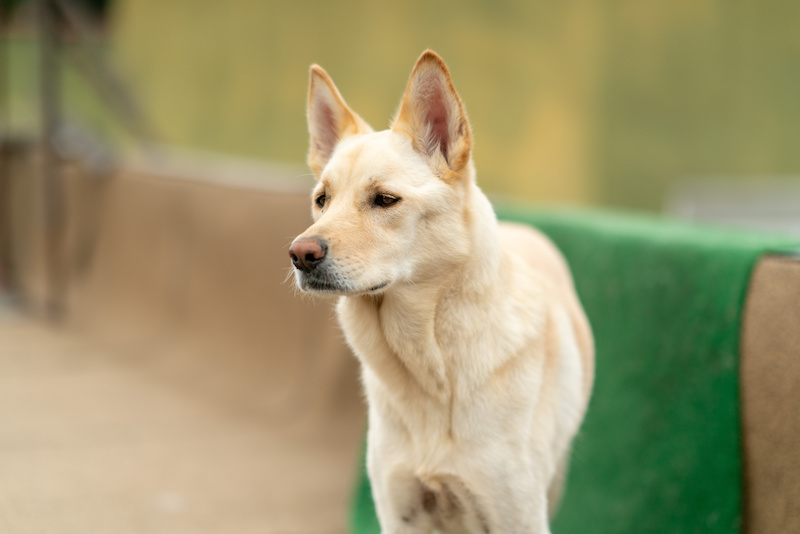
Considered one of South Korea’s Natural Treasures (Korea Natural Treasure #53, to be precise), the Korean Jindo Dog is highly intelligent, loyal, and courageous. A clean and fastidious breed, the Jindo is a discerning dog with a stellar reputation as a tracking dog, all of the aforementioned qualities that made the Los Angeles Police Department consider the breed for law enforcement service in 2010. Specifically, it was thought that the Jindo would excel in patrol and drug detection work, and particularly as search and rescue dogs.
In October of 2010, two Jindo puppies, “DaeHan” and “Mingook,” were gifted to the Los Angeles Police Department by the South Korean government for training as K9 units (the dogs’ names combined meant “Republic of South Korea”), and another two pups, “Hanmi” (which means “U.S.-Korea”) and Jin Kor” (which means “Jindo dog from Korea”) were slated to go to the Glendale Police Department.
It didn’t work out for either law enforcement departments.
After a year of trying, trainers found that the dogs didn’t have the right disposition for police work. They simply lacked sufficient focus and consistency for the needs of law enforcement agencies. They mastered the tasks just fine, but once they got out of the training environment, they got distracted in the real world. Or did they just get bored?
Mingook, a butterscotch colored male, was able to detect and respond to gun odors at 12 weeks old, a feat considered “phenomenal.” He could locate guns hidden in brush on a 5-acre plot and worked well in controlled situations at the training academy, but he became distracted in the field, and grew to become aggressive around other dogs.
Daehan, the white female, was a great companion dog, but would go off task if her handler wasn’t present. In time, she refused to do the work and was more interested in curling up on a lap and hanging out with people. Both were easily distracted, but the Jindo is an independent breed, and we wonder if “distracted” wasn’t another way of describing a dog with a mind of its own. Ultimately, the LAPD rejected the Jindos as police dogs. Daehan was placed in a private home owned by a trainer who already had four dogs of his own, and we’ve not yet find what became of the other three Jindos, but we suspect they were also placed in private homes.
The police departments may not have been to blame. The Korean military had also been testing the Jindos, but stopped after it ran into similar problems, this according to Chang Y. Lee, president of the Korean American Federation of Los Angeles, and facilitator of the donation of the dogs.
We came across a comment that may have summed it up best: To paraphrase, it’s challenging for a true hunting dog like the Jindo to perform tasks that police need them to do. It’s not unlike taking a plow horse and asking it to race on a track. The horse would run, but it would never win. “Jindos are very street-smart. But they’re not police dogs.”
A bit more can be read about this here.
Photo Credit: Roberto Vivancos/AdobeStock
